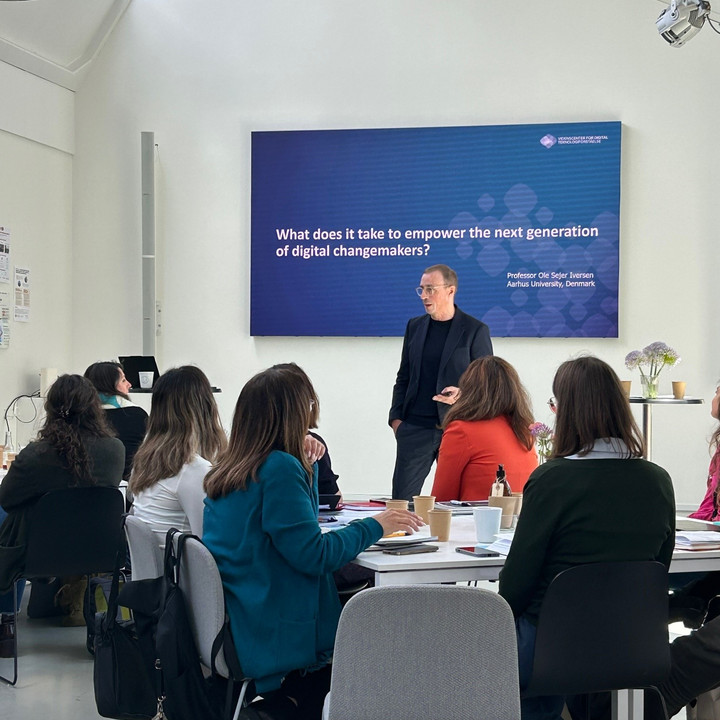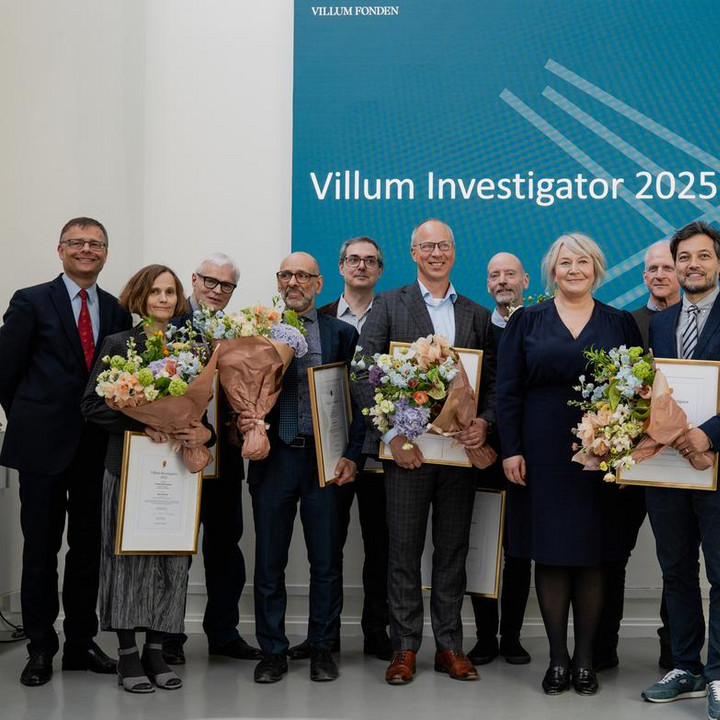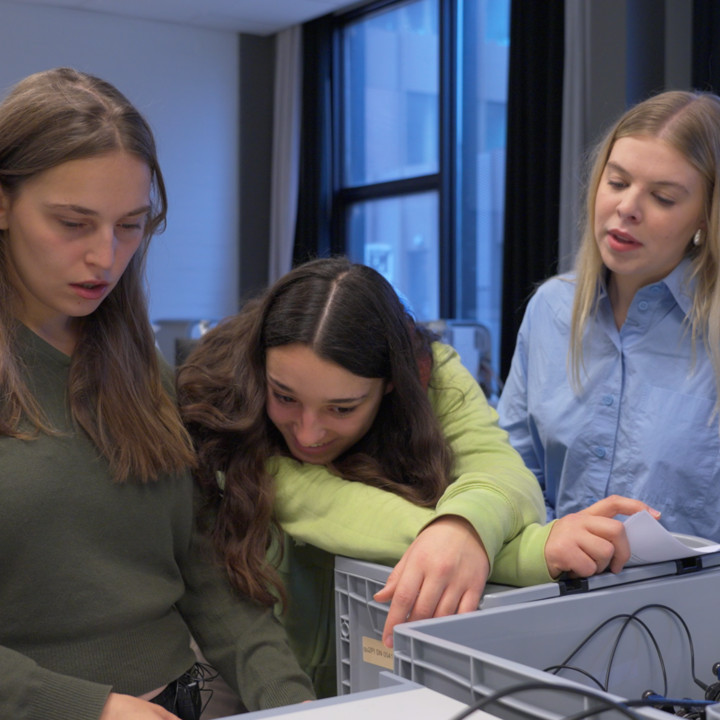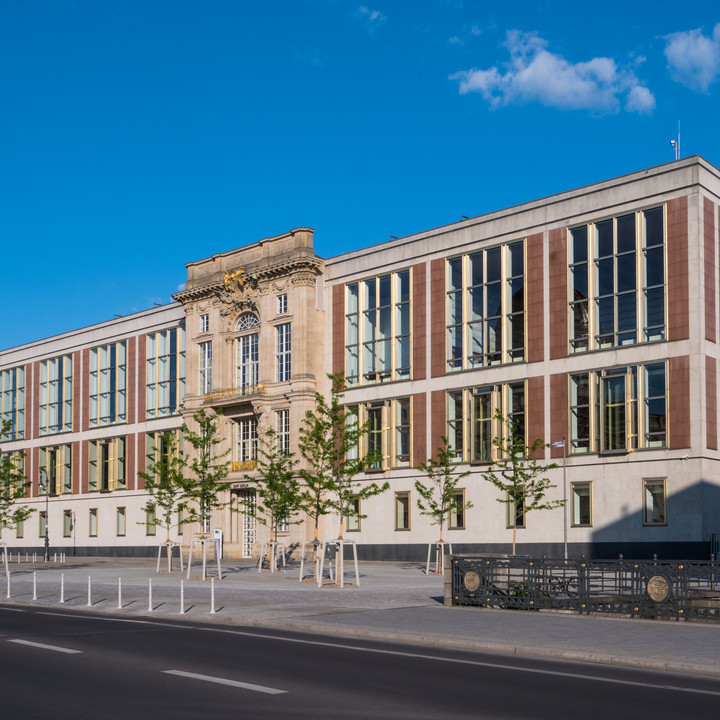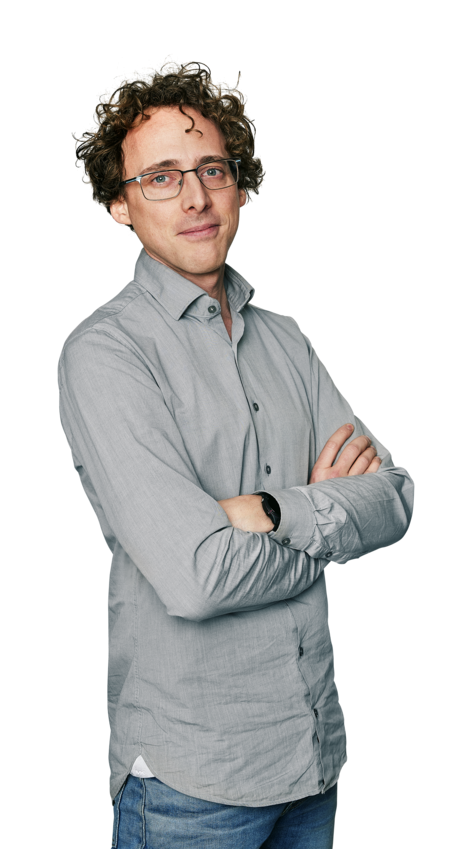Nye digitale, grønne og sociale initiativer i Tjekkiet og Slovakiet for fremtidens unge

Ni projekter skal styrke unges motivation for uddannelse og ruste dem til at blive frontløbere i den grønne og digitale omstilling. Projekterne spænder fra erhvervsskoler, der arbejder med at styrke elevernes digitale og grønne kompetencer til NGO’er, der med mentorstøtte til udsatte unge fra roma-miljøer, hjælper dem videre med deres uddannelser. Villum fonden har bevilget i alt 100 mio. kr. til projekterne under uddelingsområdet Unge og uddannelse i Europa.
I byen Frydek-Mistek i det nordøstlige Tjekkiet skal elever og lærere på byens erhvervsskole i fællesskab udvikle en grøn teknologipark til brug på både uddannelserne og rekreativt. I Bratislava, hovedstaden i Slovakiet, vil en skole etablere en helt ny form for teknisk erhvervsuddannelse, hvor den traditionelle undervisning for en stor del skal erstattes med elevstyret projektarbejde. En metode som senere skal udbredes til en 1/3 af landets øvrige erhvervsskoler.
”Den digitale og grønne omstilling kræver, at Europas unge udvikler kompetencer til at bruge nye teknologier i hverdagen og på jobbet. Og de skal kunne omsætte deres viden til kloge løsninger – til gavn for et grønnere og mere bæredygtigt samfund. Dét vil vi gerne understøtte med vores program.”, fortæller programdirektør hos Villum Fonden, Agi Csonka.
Andre projekter drejer sig om støtte til de mest socialt udsatte børn og unge, som i dag ofte dropper ud af uddannelsessystemet. I en række byer i Slovakiet vil et par organisationer således starte aktiviteter som mentorordninger og etablering af fritidscentre til romabørn og unge. Sammen med stipendieordninger skal det motivere, kompetenceudvikle og fastholde dem i uddannelse.
Utraditionelle partnerskaber skaber forandring
I flere af de bevilgede projekter opbygges der nye former for partnerskaber. I byen Brno, i Tjekkiet, vil en teknisk erhvervsskole med hjælp fra et dansk konsortium bestående af erhvervsskoler, virksomheder og grønne organisationer, skabe en række undervisningsmoduler som skal indgå i forskellige uddannelser, og som skal styrke elevernes grønne og digitale kompetencer.
”Projektet har fået en god støtte fra de regionale myndigheder og erhvervsliv”, forklarer Agi Csonka. ”Vi forventer, at erfaringerne med de nye uddannelser kan spredes til en række andre tjekkiske erhvervsskoler”.
Hos projektet Open Future i Slovakiet vil man udbygge et 3-årigt pilotprogram, der introducerer socialt udsatte børn i alderen 11-15 år for nye digitale teknologier, soft skills og iværksætteri i et nyt slags kreativt træningscenter. Og med projektbaseret læring og hjælp fra mentorer fra erhvervslivet og den offentlige sektor bliver børnene bedre klædt på til også at skabe forandring i deres lokalsamfund.
”Vores langsigtede mål er at lave et program, som kan medvirke til at reducere de sociale og økonomiske forskelle mellem børnene. Ved at kombinere teknologiværksteder og stærke kræfter fra kommuner og erhvervsliv vil børnene være i stand til at reagere på en foranderlig verden og samfundets udfordringer, fortæller Martina Kolesarova, direktør i fonden Nadácia Pontis, der er initiativtager til projektet.
Bevillingen skal bl.a. bruges til at opbygge et netværk af nyskabende teknologicentre og direkte betjene 8 kommuner og 8 grundskoler og organisationer i Slovakiet med deltagelse af 490 børn. Programmet bliver også tilgængeligt for lærere, elever og NGO’er i resten af Slovakiet.
Villum Fonden ønsker at ruste Europas unge til at blive frontløbere i den digitale og grønne omstilling.
Med European Vocational and Training Initiativet (EVI) støtter Villum Fonden inkluderende VET med fokus på grønne og digitaliserede erhvervsuddannelser og arbejder for at fremme unges sociale færdigheder og motivation til uddannelse. Vi har primært fokus på projekter i Tjekkiet, Slovakiet, Italien og Frankrig.
Læs om de ni projekter (på engelsk)
With the Green Transition Academy the partners’ ambition is to develop and implement new learning modules for green and digital training at the Purkynka school in the Czech Republic. The courses will be, coupled with the design of interactive and engaging active learning methods that can be implemented into the school curricula. The purpose of the project is to empower students and youth in Brno with a skill set that encompasses both green and digital competences, elevate the quality of training and provide training to teachers and facilitating networking opportunities through cross-cultural teachers’ lounges, along with supplying them with the necessary tools to be trainers in the twin green and digital transition.
The ambition is to create a VET model for the green and digital transition that can be further developed with additional courses extended to various sectors and VET schools throughout the Czech Republic. To achieve this goal, the end of the project will culminate in a conference where VET schools from across the Czech Republic will be invited to participate, sharing the results and course materials. The project is a cross national partnership between organizations, companies, schools, and municipalities.
The project aims to revolutionize Vocational Education and Training in Eastern Slovakia by embracing modernization, digitalization, and inclusion. The region of Trebišov and Michalovce has the highest ratio of recorded unemployment within Slovakia and since last year faced a wave of refugees from Ukraine. That’s why significant objectives are the successful modernization and development of a proper curriculum as well as the integration of disadvantaged groups into the Slovak VET system, incorporating them into the dual education system. These steps will contribute to the economic, demographic, and social development of the region. With a student body of 438 and 56 teachers, the institution prioritizes integrating the technology of Industry 4.0 and modern development into its curriculum, addressing the changing needs of both students and employers in the current economic landscape.
In the Teach Live Plus project, our aim is to tackle the issue of academic underachievement and drop-out rates among pupils aged 11-18 in the Czech Republic. The project strives to equip as many pupils as possible with the essential skills needed to smoothly transition from primary to secondary education and to successfully complete their secondary or vocational schooling.
The project involves 3 main activities:
- a new teacher training program focused on effectively engaging socially disadvantaged pupils in learning;
- advocacy initiatives to bring about systemic changes (mainly involving collaboration with state universities and the Czech Ministry of Education);
- evaluation to assess the qualities and limits of our new program in order to come up with suggestions for the improvement of teacher education in the Czech Republic.
The project concerns children and youth aged 10-18, including immigrants, with a difficult access to education due to socially and economically disadvantaged family backgrounds in the Prague area. The project wants to innovate the current programs and develop new programs based on the principle of individual activities: STABILIZATION = individual stabilization of target group and thereby enabling further development in the field of education; LEARNING = support and motivation for further education; DEVELOPMENT = motivation to promote experience and skills on digital technologies, climate, and sustainable environment. SPREADING GOOD PRACTICE = spread innovative procedures in contact/ social work, in resocialization programs, in social and legal protection of children and to disseminate new findings and developed methodologies.
Our vision is to renovate the outdoor spaces in the Business Academy building to be used for the implementation of mainly extracurricular activities for students and teachers, primary school students and the wider public. The space will of course be used for actual teaching, also for workshops, shows, performances of student English theatre and other cultural and educational events, holiday camp activities for primary school students.
The main idea of the project is to build a space that will not only be aesthetically pleasing, but also environmentally responsible and energy self-sufficient. The space will be equipped with a model of all available alternative energy sources and environmentally sustainable solutions - solar energy, wind energy, heat pump, waste and rainwater recovery. A big ambition is to implement hydrogen technology as a source of clean energy.
In September 2022, Lýceum C. S. Lewisa was launched, a new VET educational pathway, which redefines VET for the emerging challenges of the 21st century. Lýceum is based on three pillars: entrepreneurship, digital and character education. We argue that it is actually the combination of entrepreneurship (creating solutions) and character education (creating solutions for the improvement of society) that is key to tackling the green transition. Complemented by a strong foundation in digital skills, Lýceum equips students for the looming transitions unlike any other VET school in Slovakia. The grant will 1.) develop Lýceum into a mature educational pathway, 2.) scale-up our know how to 30% of Slovak VET schools and 3.) transform our school into a diverse green learning environment.
The project aims to systematically assist marginalized Roma youth from grade 8/9 in secondary school through the selection, transition, and successful completion of vocational post-secondary education, leading to integration into the job market. The project design incorporates the authors' experience managing state programs on dual (vocational) education to address limitations and gaps. Taking a holistic approach, the project actively involves parents, teachers, vocational schools, and potential employers to create a supportive, accessible, and inclusive vocational environment. Additionally, the project plans to collaborate at an institutional level with municipalities, Self-Governing Regions overseeing secondary and vocational schools, as well as enterprises, to establish local partnerships, raise resources, and institutionalize the program.
Open Future is a 3-year extra-curricular program for young people aged 11 to 15. This program offers non-formal vocational education in entrepreneurial, digital and soft skills, boosting equal educational opportunities. It specifically targets state schools with high number of students coming from disadvantaged backgrounds. A key feature is the after-school centers, designed as modern ‘co-working spaces' right on the school premises. The program champions the latest technologies, fosters innovative thinking and drives motivation for ongoing education and loftier life goals. Drawing from our five years of experience, we aim to expand the Open Future centers, make our curriculum open source, enhance staff and mentor capacities, and push for wider entrepreneurial education in Slovakia. We believe that, with the right skills, future changemakers can be found everywhere.
The Zebra Program is a multifaceted initiative aimed at disrupting the cycle of poverty during the vital developmental stage of adolescence. It emphasizes the augmentation of emotional, social, and intellectual growth among youth participants from marginalized Roma communities in Slovakia. The program is committed to empowering emerging leaders within the Roma communities by applying a participatory approach, who will subsequently engage their peers in enriching activities. These will serve as conduits to overcome barriers to social inclusion and employment. The planned activities will encompass mentoring by positive adult role models, afterschool tutoring, training in digital skills and financial literacy, and providing constructive afterschool recreational activities, dispensed daily. These activities are tailored to engage youth in sports and foster their character development. This will be augmented by community service initiatives and vocational training modules, including life skills training. Moreover, the Zebra Program will proactively target corporations willing to contribute to the vocational training and seek the collaboration of volunteers who will assume the roles of mentors, tutors, and trainers. By fostering connections between the marginalized Roma youth and the Slovak majority, the program aspires to mitigate social exclusion, prejudice, and institutional racism, all of which have historically impeded the Roma community's pursuit of dignity and self-sufficiency. This initiative is a robust response to generational poverty, enhancing the prospect of a life imbued with dignity and self-reliance for excluded Roma youth.
